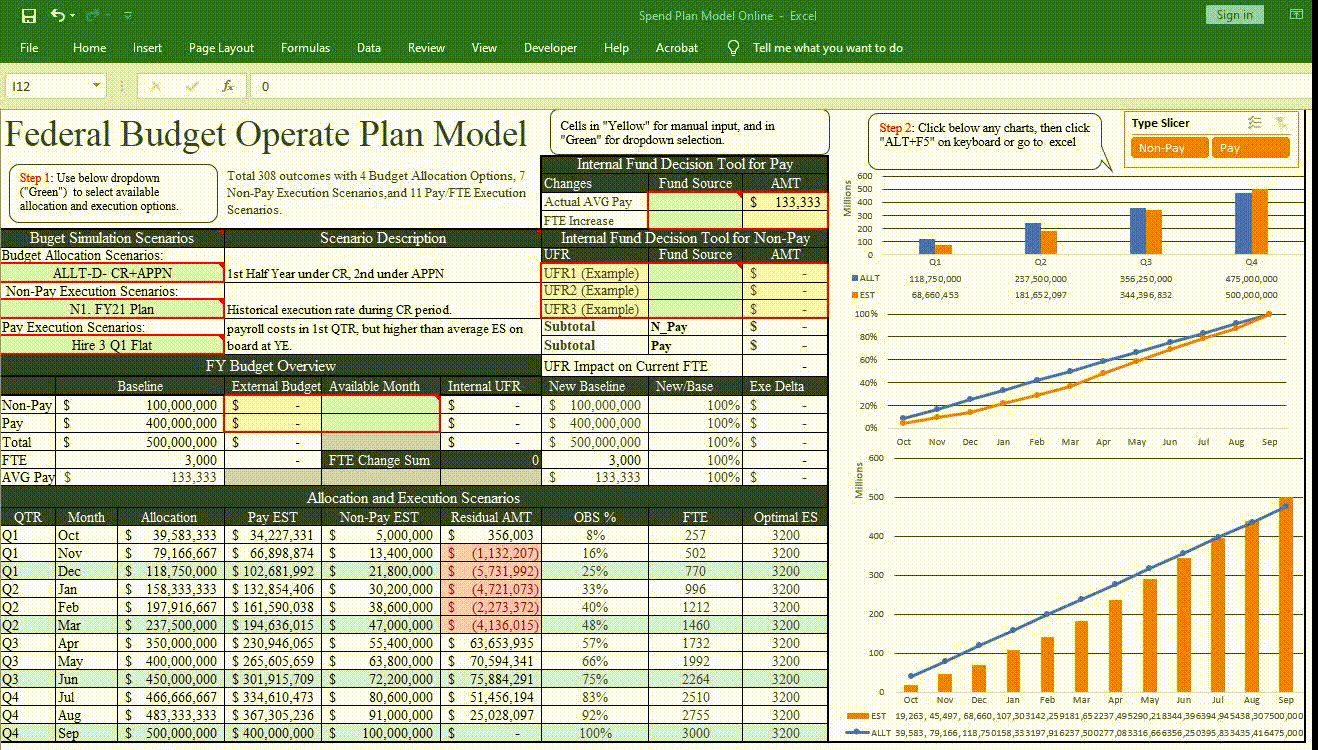Execution - Step 20 Financial Plan
The requirements outlined in this section are intended to ensure agency compliance with legal and administrative requirements. 31 U.S.C. 1514 requires that each agency have a system of administrative control of funds. Section 120 of OMB Circular A-11 requires that all requests for apportionment or reapportionment be supported by financial plans. Section 120.25 of the Circular requires monitoring of Federal employment and submission of an FTE and staffing plan.
The primary purposes of financial plans are to:
- ensure that obligations are made in accordance with plans presented in the budget justifications and items included in the enacted appropriation bill;
- assist in determining to what extent items included in Committee reports but not specified in bill language should be funded;
- assess the need for Congressional notification of reprogramming actions;
- assist in managing and controlling the obligation of funds so as to avoid a deficiency;
- identify the timing of unusual events; e.g., a major procurement or staffing increase resulting from a new program effort; and
- assess the effects of continuing resolutions or program reductions.
Operating units are responsible for maintaining detailed financial and staffing plans which reflect monthly obligations and FTE usage by program, project and activity. For purposes of financial plans and reprogrammings, a program, project or activity is defined as the most specific budget item identified in any of the following:
- the Program and Financing Schedule in the President’s annual budget appendix;
- the enacted appropriation bill; and
- House, Senate or Conference reports and explanatory statements on the appropriation bill.
The level of detail which meets the definition of a program, project or activity varies among operating units and may change with each annual appropriation act. When the enacted appropriation bill and Committee reports do not specify otherwise, a program, project or activity is equivalent to the line item detail presented in the Congressional justifications. In cases where Congress has included bill or report language listing specific projects the operating unit is expected to fund, the items included in the detailed internal financial plans are more specific.
All reports will reflect changes due to all reprogramming actions, including reprogrammings which do not require prior Congressional notification. In addition, all requests for reapportionment will be accompanied by revised financial plans. Interim financial and staffing plans may be required if a short-term Continuing Resolution is enacted in lieu of an appropriation act.
Financial Plans of monthly totals by account and monthly by subactivity as shown in the Congressional budget “Summary of Resource Requirements” (salmon sheet). The staffing plan reflects FTE and staffing for the entire operating unit in one report. On the initial plan, the "Last Plan" line agrees with the 20CY President's Budget. Line 3a is the total of lines 1a and 2a; line 3b is the total of lines 1b and 2b, etc. The "Revised Plan" line reflects the Recommended Conference Action. If necessary, this line will later be revised to reflect enacted appropriations. The staffing plan submitted to OMB in the middle of the year (March 1st) includes any 20CY changes included in the President's 20BY Budget Request to Congress. When reports are made against the plan, actual data will agree with the S.F. 113A and 113G. Plans are accompanied by a narrative statement.
Example of Financial Plan, AKA Budget Operate Plan, Spend Plan
 Previous: Execution - Step 19: Monitoring Federal Outlays
Next: Execution - Step 21 Reprogramming
Previous: Execution - Step 19: Monitoring Federal Outlays
Next: Execution - Step 21 Reprogramming